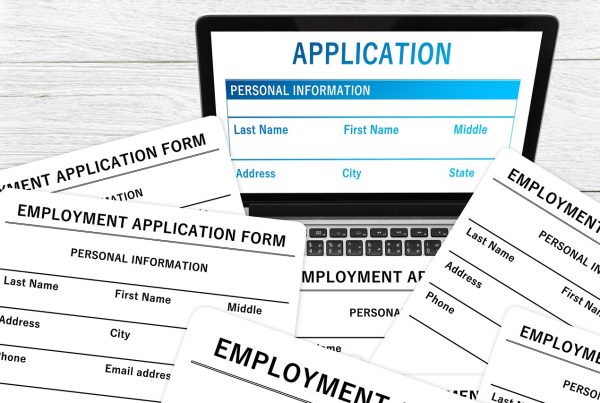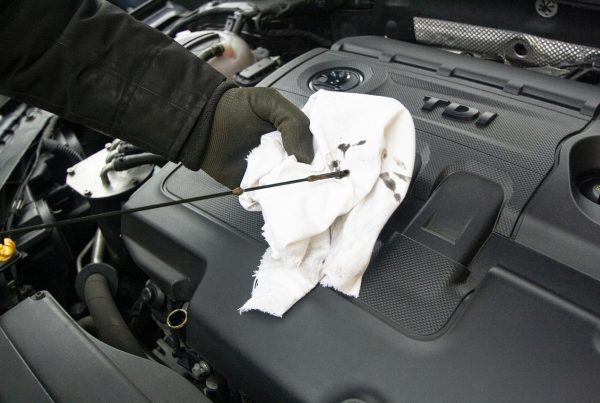In today’s highly competitive automotive service industry, the difference between thriving and merely surviving often comes down to one critical factor: the quality of your service advisors. These frontline professionals serve as the bridge between technical expertise and customer satisfaction, making their training not just important, but absolutely essential for dealership success.
The Service Advisor: Your Revenue Engine
Service advisors are the unsung heroes of automotive dealerships, responsible for translating complex technical information into understandable recommendations for customers. They’re tasked with building trust, managing expectations, and ultimately driving revenue through effective communication and sales skills. Without proper training, even the most well-intentioned service advisor can miss crucial opportunities that impact both customer satisfaction and dealership profitability.
Research consistently shows that dealerships with properly trained service advisors significantly outperform those without structured training programs. These high-performing service departments see increased revenue per repair order, higher customer retention rates, and improved customer satisfaction survey scores—all directly tied to the quality of their service advisor interactions.
The Financial Impact of Untrained Service Advisors
The cost of inadequate service advisor training extends far beyond missed upselling opportunities. When service advisors lack proper communication skills, customers may feel pressured, confused, or mistrustful of recommendations. This leads to several costly consequences:
Lost Revenue Opportunities: Untrained service advisors often fail to identify and communicate necessary maintenance and repair services. Industry studies reveal that over 60% of customers leave service centers without purchasing services they actually need, simply because these services were never properly presented or explained.
Customer Retention Issues: Poor communication creates customer dissatisfaction, leading to negative reviews, reduced loyalty, and customers seeking service elsewhere. The lifetime value of a lost customer can reach tens of thousands of dollars when considering multiple vehicles and years of potential service.
Decreased Efficiency: Service advisors who haven’t been trained in proper processes spend more time handling objections, dealing with customer complaints, and managing misunderstandings that could have been avoided with effective initial communication.
Building Trust Through Professional Communication
Effective service advisor training focuses heavily on communication skills that build trust and confidence. Customers entering a service department often feel vulnerable—they may not understand automotive terminology, worry about being oversold, or feel anxious about unexpected repair costs. A professionally trained service advisor can transform this potentially stressful experience into a positive interaction.
Training programs teach service advisors how to explain technical issues in accessible language, set realistic expectations for repair timelines and costs, and present recommendations in a consultative rather than sales-focused manner. This approach not only improves customer comfort but also increases the likelihood of service approval and future business.
When customers trust their service advisor, they’re more likely to approve recommended services, refer friends and family, and return for future maintenance needs. This trust-building foundation creates a sustainable competitive advantage that drives long-term profitability.
Maximizing Every Customer Interaction
Professional service advisor training transforms routine customer interactions into revenue-generating opportunities. Trained advisors learn to conduct thorough vehicle inspections, identify potential issues before they become major problems, and present findings in a way that helps customers make informed decisions about their vehicle’s care.
This systematic approach ensures that no maintenance need goes unnoticed or uncommunicated. Whether it’s recommending necessary brake service, identifying worn tires, or suggesting preventive maintenance, trained service advisors maximize the value of every customer visit while genuinely serving the customer’s best interests.
The key is learning to present these recommendations without appearing pushy or dishonest. Quality training programs teach service advisors to focus on the customer’s safety, vehicle reliability, and long-term cost savings rather than just immediate sales targets.
Improving Customer Satisfaction Survey Scores
Customer satisfaction surveys directly impact dealership reputation, manufacturer relationships, and often tie to financial incentives. Service advisor training plays a crucial role in improving these critical metrics. Trained advisors learn specific techniques for:
- Setting proper expectations from the initial greeting
- Providing regular updates during service
- Explaining charges and work performed clearly
- Following up to ensure customer satisfaction
- Handling complaints professionally and effectively
These skills directly translate to higher survey scores, which benefit the entire dealership operation. Many training programs focus specifically on survey improvement strategies, teaching advisors how to exceed customer expectations at every touchpoint.
The Role of Ongoing Training and Development
Effective service advisor training isn’t a one-time event—it requires ongoing development and reinforcement. The automotive industry continuously evolves with new technologies, changing customer expectations, and updated manufacturer requirements. Regular training ensures service advisors stay current with best practices and maintain peak performance levels.
Ongoing training also addresses skill gaps that may emerge over time, reinforces positive behaviors, and introduces new techniques for handling challenging situations. Dealerships that invest in continuous service advisor development see sustained improvements in performance metrics over time.
Technology Integration and Modern Training Methods
Today’s service advisor training incorporates both traditional face-to-face instruction and modern technology solutions. Online training modules provide flexibility for busy dealerships while onsite workshops offer hands-on practice and personalized coaching. This blended approach ensures comprehensive skill development that fits various learning styles and schedules.
Premium training programs combine proven sales processes with cutting-edge communication techniques, creating well-rounded professionals who can excel in any customer interaction. The investment in both online and onsite training options maximizes the learning experience while accommodating operational demands.
Measuring Training Success
Successful service advisor training programs include measurable outcomes that demonstrate return on investment. Key performance indicators include:
- Increased revenue per repair order
- Higher customer satisfaction scores
- Improved service absorption rates
- Enhanced customer retention percentages
- Reduced complaint frequency
- Greater advisor confidence and job satisfaction
These metrics provide concrete evidence of training effectiveness and help justify continued investment in professional development.
Creating a Culture of Excellence
When dealerships prioritize service advisor training, they create a culture that values professional development and customer service excellence. This culture attracts high-quality employees, reduces turnover, and establishes the dealership as a leader in customer service within the local market.
Well-trained service advisors take pride in their professional skills and often become advocates for continued learning and improvement. This positive attitude permeates throughout the service department, creating an environment where excellence becomes the standard rather than the exception.
Conclusion: Training as Strategic Investment
The importance of training service advisors cannot be overstated in today’s competitive automotive landscape. Professional training transforms service advisors from order-takers into skilled professionals who drive revenue, build customer loyalty, and enhance dealership reputation.
The investment in quality service advisor training pays dividends through increased profitability, improved customer satisfaction, and sustainable competitive advantage. Dealerships that recognize training as a strategic necessity rather than an optional expense position themselves for long-term success in an increasingly demanding marketplace.
By prioritizing service advisor training, dealerships invest in their most valuable asset—the people who interact with customers every day and directly influence the customer experience that determines business success.
Frequently Asked Questions (FAQs)
1. How often should service advisors receive training?
Service advisors should receive initial comprehensive training when hired, followed by ongoing quarterly or semi-annual refresher training. Regular training ensures skills remain sharp and advisors stay current with industry best practices and new technologies.
2. What specific skills should service advisor training cover?
Effective service advisor training should cover communication skills, technical knowledge, sales processes, customer service excellence, objection handling, survey score improvement, and complaint resolution. The training should also include product knowledge and manufacturer-specific requirements.
3. How can dealerships measure the ROI of service advisor training?
ROI can be measured through increased revenue per repair order, higher customer satisfaction scores, improved service absorption rates, better customer retention, reduced complaints, and decreased advisor turnover. These metrics typically show improvement within 30-90 days of training implementation.
4. What’s the difference between online and onsite service advisor training?
Online training offers flexibility and consistency, allowing advisors to learn at their own pace and revisit materials as needed. Onsite training provides hands-on practice, personalized coaching, and immediate feedback. The most effective programs combine both approaches for comprehensive skill development.
5. How does service advisor training impact customer retention?
Properly trained service advisors build stronger customer relationships through effective communication, trust-building, and professional service delivery. This leads to higher customer satisfaction, increased loyalty, and improved retention rates, with customers more likely to return for future service needs and refer others to the dealership.








 Based in the USA
Based in the USA